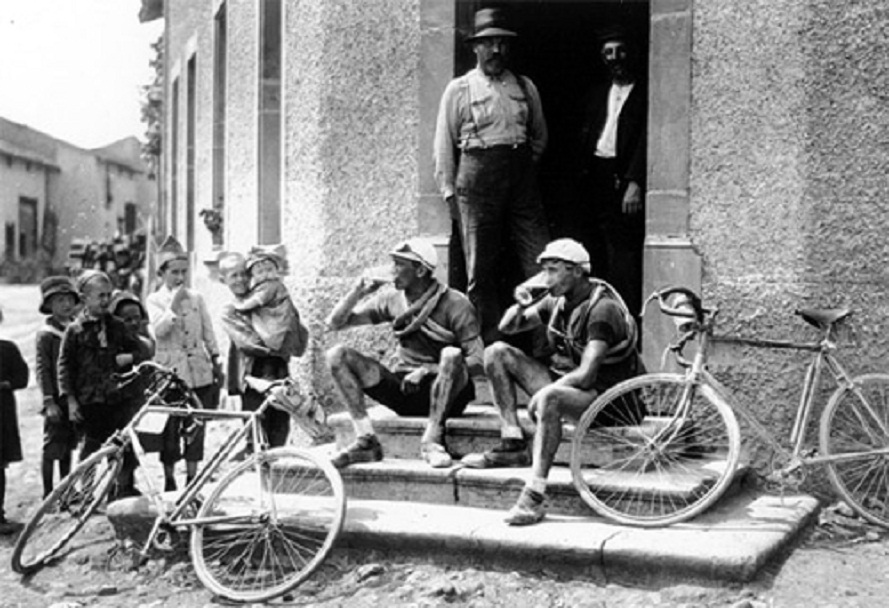After a hard day on the bike, you feel like you can reward yourself with a beer (or three). You are a little dehydrated from the ride and a little hungry, although you feel great. What effect does alcohol and training have on your body? What does it do to your recovery? And how will it affect your ride the next day?
Alcohol and Training Basics
The cognitive effects of alcohol are well known to everyone: impairment of coordination, decision making and sensory perception. Beyond the cognitive effects, there are other effects that alter metabolism, muscle function, thermoregulation, cardiovascular function, and neurological function.
Metabolism
Alcoholic beverages have calories that your body uses for energy, but they also alter your metabolic processes. It impairs glycogen synthesis, blocking your muscles from their energy source. Insulin production increases, further inhibiting glycogen synthesis and storage.
Muscle Function
With less accessible glycogen, muscles have less available energy. Additionally, alcohol and cramping have a correlation although the exact mechanism is unclear, although dehydration associated with alcohol may play a role.
Thermoregulation
Alcohol is a diuretic, forcing the body to urinate out excess fluid. It is also a vasodilator, leading to increased fluid loss through evaporation. A night of drinking is usually a sweaty night. Less fluid leads to increased cardiovascular effort and decreased evaporative cooling. This leads to an elevated core temperature.
Cardiovascular Function
The dehydration leads to lower blood volume, higher viscosity, and more effort for the heart. This leads to less efficient delivery of oxygen to the muscular system and decreased performance ensues.
Neurological Function
Alcohol is a depressant, leading to slower cognitive ability. It impairs absorption of B vitamins, which are critical to neurological function, along with zinc, which is critical to immune support. It also impairs sleep quality, a critical time for the body to repair itself.
Performance Effects of Alcohol
Small amounts of alcohol have limited affect on aerobic performance. Over the threshold results in a more dramatic decrease in aerobic performance. In an endurance sport like cycling, any small loss of aerobic performance leads to big losses out on the road.
Larger performance losses occur through inhibiting the regular thermoregulatory processes. A higher core temperature leads to greater loss of fluids through sweating. Less available blood volume because of sweating causes higher cardiac stress and effort. This results in decreased efficiency due to less oxygen getting to the muscles and higher energy requirements to keep the blood flowing.
Lower available glycogen means less energy for the muscles. This leads to less time to exhaustion and when you do ingest more carbohydrates, the synthesis to usable adenosine triphosphate, or ATP, the fuel for your muscles is inhibited.
Recovery Effects of Alcohol
The biggest recovery effects of alcohol and training are through disturbed sleep. Limiting sleep limits the time that your body can repair itself and perform important brain functions. When you sleep, your body produces human growth hormone (HGH), a powerful chemical that promotes cell growth and regeneration. Without HGH, your body would begin to fall apart because no repair processes would occur.
All of the effects of alcohol on performance also come into play for recovery. Your body is not working optimally, leading to diminished performance in all of the body systems – dehydration, compromised delivery of glycogen, an overtaxed cardiovascular system all lead to poor recovery.
This leads into training the next day. A hangover still exhibits symptoms of your body working sub-optimally. Your body is still recovering from the effects of you essentially poisoning it. One night of five drinks can lead to three days of recovery for your body from the drinking.
You Are Human
Humans drink alcohol; it can be social, it can be for the taste. Consider the effects of alcohol and training and what effects it will have on you and your riding goals. Remember that unless you are on the razor’s edge of cycling performance, an alcoholic drink will not make or break your season. Go enjoy yourself, but not too much. Your riding requires it. You enjoy that too.
